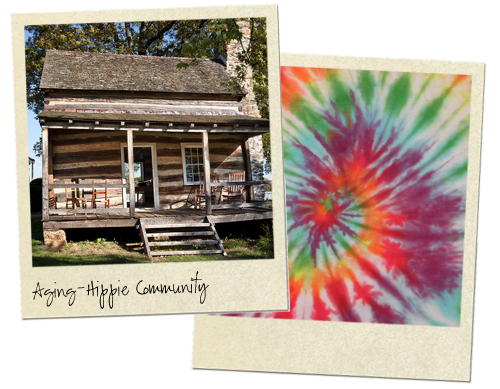{Money} “I’m 54. Is it too late to save for retirement?”
We recently received this question from an FOF member:
“I’m 54 years old, and I have nothing saved for retirement. Is it too late? Can I live on social security?”
Yes, this sounds scary. It’s also an all-too-common scenario for FOFs: Almost 50% of boomers don’t have enough money saved for retirement, according to a 2010 report by ERBI.org.
 But when we posed this question to Elle Kaplan, a money manager who specializes in helping FOF women plan for retirement, her advice left us feeling surprisingly empowered and optimistic.
But when we posed this question to Elle Kaplan, a money manager who specializes in helping FOF women plan for retirement, her advice left us feeling surprisingly empowered and optimistic.
Says Elle: “Look at your financial assets the same way you look at your health. You wouldn’t wake up at 54 and say, ‘Well, it’s too late to be healthy so forget about exercising and eating right.’ It’s definitely not too late; you can have a wonderful financial future,
but start today!
“Step 1: For the next two months, write down everything that you spend, and all your bills. That way you can really see what money is coming in and what money is going out.”
“Next, figure out what your social security payment is going to be each month. The Social Security Administration will provide this information and tell you how much you’ll get if you retire at 67 or if you put it off until 70.
“Seeing these numbers–what you’re spending and what you’re going to have from social security–will let you know how much you need to start saving to fill the gap.
“Some women may find that by cutting costs here and there, they can save enough to fill their retirement gap. Where can you easily cut back? Do you buy your coffee every morning? Do you pack a lunch or buy it? How often do you eat out? Do you buy clothes on sale? Are these expenditures a necessity? Because saving for retirement is a necessity.
“For some women the gap may be quite large–they need to take a more aggressive approach.
“Three more aggressive, but very doable strategies:
1. Stop taking care of your adult children. This is a problem with so many FOF women. You need to tell your kids: ‘The most loving thing that I can teach you at this point, is how to be self-sufficient. So that hopefully one day you won’t be stressed about retirement the way I am right now. I’m giving you that gift.’
2. Change your location. I have a client who works in New York City, however she’s from a small farming community where she still has friends and family. Her retirement strategy is to return to that community where the cost of living is significantly less and her dollar will go much farther.
3. Consider semi-retirement. There’s nothing wrong with thinking about second careers to keep some income coming in. It doesn’t have to be a full-time gig. Consider some aspect of your job that you enjoy–how can you continue it on a part-time basis?
“Now that you know how much you need to save, you need to figure out where to put those savings.
“First, is there an employer match for your 401K? If so, you need to max that out immediately. If not, a beautiful option for this woman is a Roth IRA. The IRA is the asset class, but then you have to choose what goes in the IRA. There are a number of really nice market-based index funds. They are inexpensive and you’re going to have instant diversification. You’ll own a basket of 500 different securities and they’re low cost–low fees.
“The most important thing: Saving for retirement doesn’t have to be radical. It’s like anything else in life. If you said to me tomorrow that you were going to be on an all-vegatable, 1,000-calorie diet, how long would that really last? An hour! It’s too extreme. But if you said, ‘instead of a donut in the morning, I’m going to have whole-wheat toast,’ that’s realistic.
“Retirement is no different. If you’re 54 and you’re retiring, let’s say, at 70, you’ve got 16 years. You can change your reality in that time.”
Elle Kaplan is the Founding Partner and CEO of Lexion Capital Management. Elle provides a broad range of wealth and risk management advice to individuals, foundations, trusts, and endowments.







 Images via
Images via 



